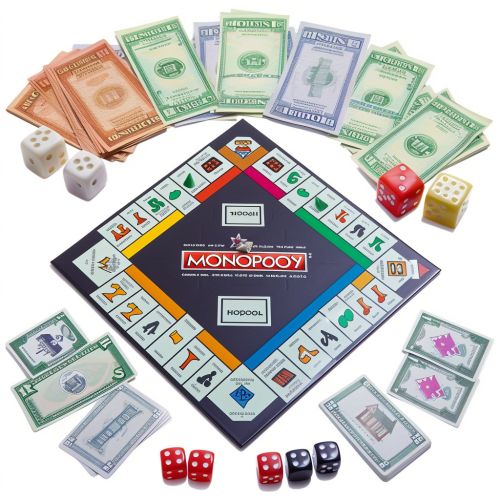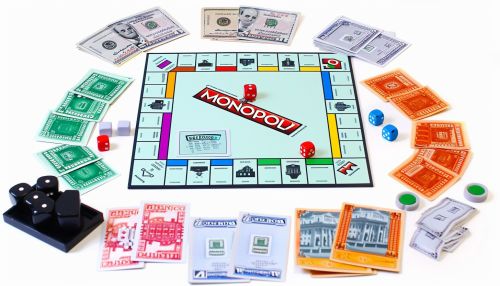Monopoly (game)
History
Monopoly is a board game that originated in the United States in 1903 as a way to demonstrate that an economy which rewards wealth creation is better than one where monopolists work under few constraints. The game was first published by Parker Brothers, now a subsidiary of Hasbro, in 1935. It is named after the economic concept of monopoly—the domination of a market by a single entity.
Gameplay
In the standard version of Monopoly, players move around the game board buying or trading properties, developing their properties with houses and hotels, and collecting rent from their opponents, with the goal being to drive them into bankruptcy. A player continues to travel around the board until they have either gone bankrupt or have monopolized the game through the ownership of every property.
Equipment
The game consists of a board with spaces, two stacks of cards known as Chance and Community Chest, play money, player tokens, houses and hotels. The spaces include properties that can be bought, utilities, railroads, and special spaces such as Go, Jail, Free Parking, and Go to Jail.
Rules
The rules of Monopoly are designed to simulate a market economy. The players take turns moving around the board according to the roll of two dice. When a player lands on an unowned property, they may buy it from the bank. If they choose not to buy it, the property is auctioned off to the highest bidder. The players collect rent from their opponents, with the rent being higher for properties that are part of a monopoly.
Strategy
The strategy of Monopoly involves the acquisition of properties and the formation of monopolies. The most successful players are those who can negotiate effectively, manage their money wisely, and take calculated risks. It is also important to understand the probabilities of landing on different spaces and to take advantage of the opportunities presented by the Chance and Community Chest cards.
Variations and spinoffs
There have been many variations and spinoffs of Monopoly, including versions based on different cities, countries, and themes, as well as video game and online versions. Some of these variations introduce new rules or alter the standard rules, while others simply change the names and artwork of the properties.
Cultural impact
Monopoly has had a significant cultural impact since its creation. It has been used as a teaching tool to explain the principles of economics and capitalism, and it has also been the subject of numerous studies and analyses. The game has also been referenced in various forms of media, including books, films, and television shows.
Criticism
Monopoly has been criticized for promoting materialism and ruthless business practices. Some critics have also argued that the game is based on a flawed understanding of economics. Despite these criticisms, Monopoly remains one of the most popular and enduring board games in the world.
See Also


